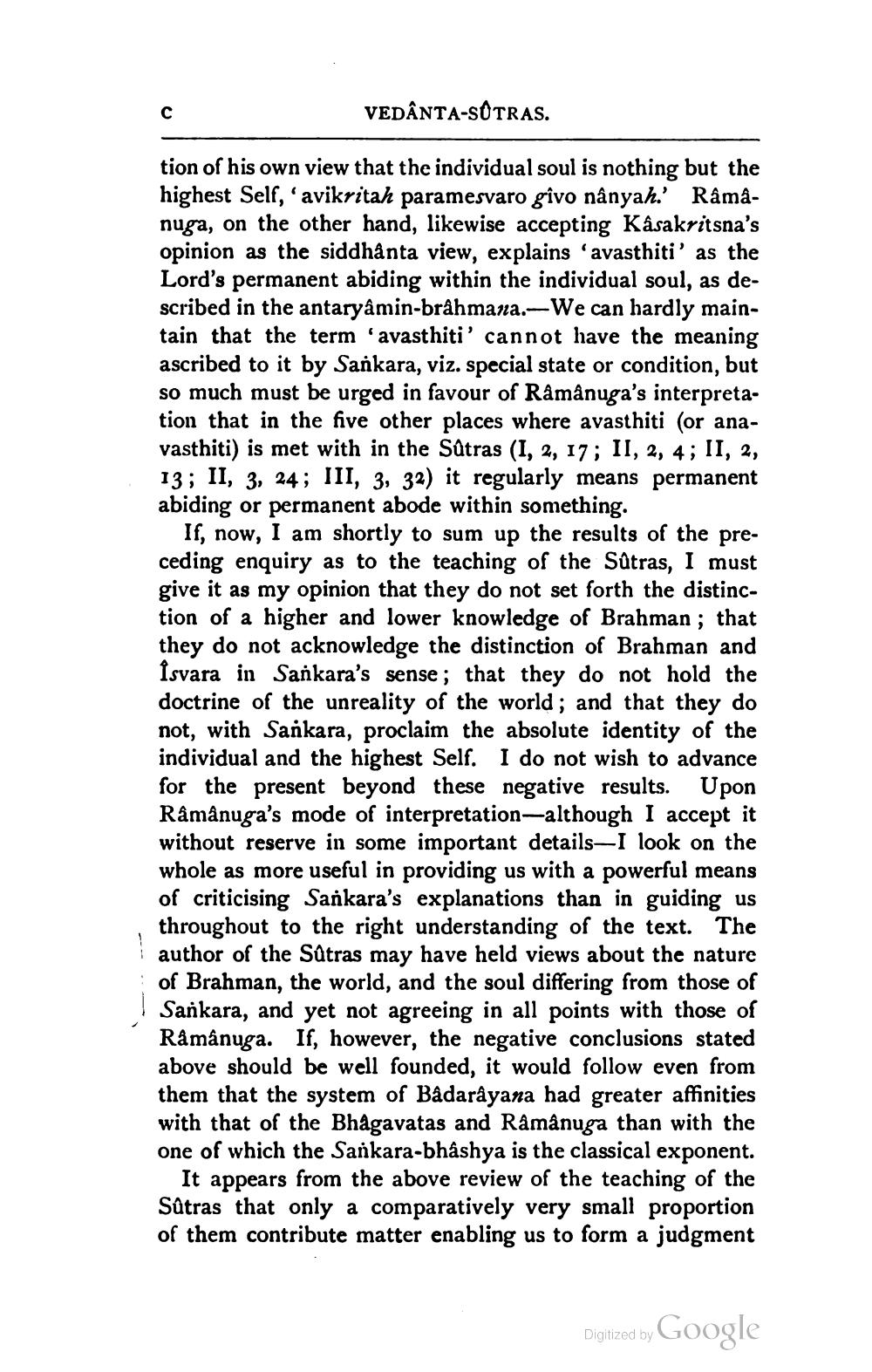________________
VEDÂNTA-SOTRAS.
tion of his own view that the individual soul is nothing but the highest Self, 'avikritah paramesvaro givo nânyah.' Râmånuga, on the other hand, likewise accepting Kasakritsna's opinion as the siddhanta view, explains 'avasthiti' as the Lord's permanent abiding within the individual soul, as described in the antaryâmin-brâhmana.-We can hardly maintain that the term 'avasthiti' cannot have the meaning ascribed to it by Sankara, viz. special state or condition, but so much must be urged in favour of Râmânuga's interpretation that in the five other places where avasthiti (or anavasthiti) is met with in the Sutras (I, 2, 17; II, 2, 4; II, 2, 13; II, 3, 24; III, 3, 32) it regularly means permanent abiding or permanent abode within something.
If, now, I am shortly to sum up the results of the preceding enquiry as to the teaching of the Sûtras, I must give it as my opinion that they do not set forth the distinction of a higher and lower knowledge of Brahman; that they do not acknowledge the distinction of Brahman and Isvara in Sankara's sense; that they do not hold the doctrine of the unreality of the world; and that they do not, with Sarkara, proclaim the absolute identity of the individual and the highest Self. I do not wish to advance for the present beyond these negative results. Upon Râmânuga's mode of interpretation-although I accept it without reserve in some important details—I look on the whole as more useful in providing us with a powerful means of criticising Sankara's explanations than in guiding us throughout to the right understanding of the text. The author of the Satras may have held views about the nature of Brahman, the world, and the soul differing from those of Sankara, and yet not agreeing in all points with those of Råmânuga. If, however, the negative conclusions stated above should be well founded, it would follow even from them that the system of Bådarayana had greater affinities with that of the Bhagavatas and Râmânuga than with the one of which the Sankara-bhashya is the classical exponent.
It appears from the above review of the teaching of the Sūtras that only a comparatively very small proportion of them contribute matter enabling us to form a judgment
Digitized by Google
Digitized by




